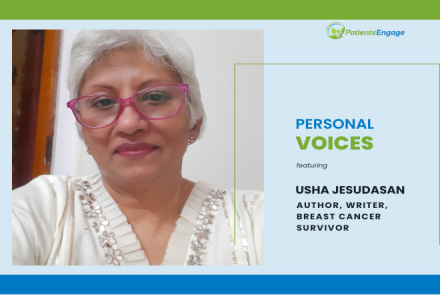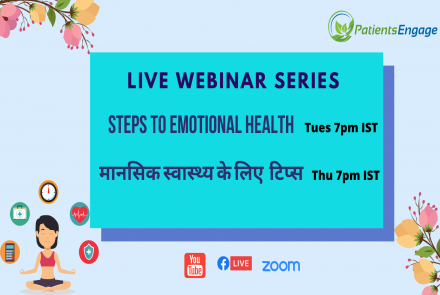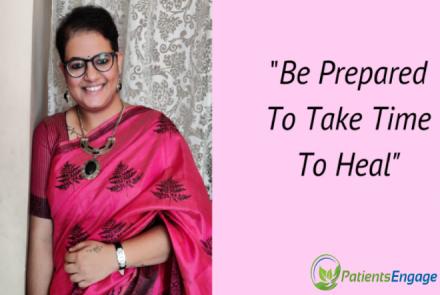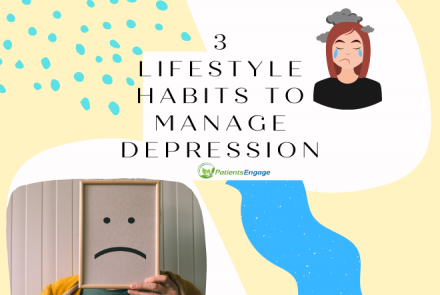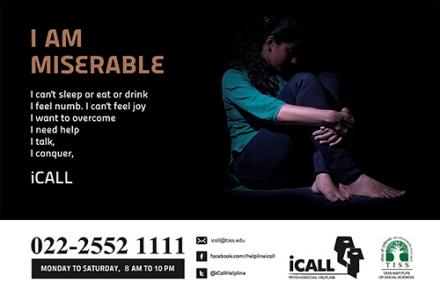
Life is not without its challenges. Sometimes the challenges can be overwhelming and your usual coping mechanisms may not be working too well. Tanuja Babre, a counseling psychologist currently serving as a programme Coordinator of iCALL, TISS explains the role of a counselor/ therapist and how you can decide on the right counsellor and the right form of counselling service.
Life events, whether positive or negative, can cause psychological distress. These experiences may include day-to-day life hassles, major life transitions, health concerns, expectations from loved ones, economic concerns, conflicts within relationships, loss, grief, natural disasters etc. It is important to remember that experiencing stress is a normal response to many of these abnormal situations and not a sign of weakness. In order to face these challenges, we rely on formal and informal coping mechanisms. Coping mechanisms are strategies that people use to manage painful or difficult emotions. Sometimes when the distress is chronic or too intense, our coping may become insufficient. In such times, seeking professional counselling services can be helpful.
हिंदी में पढ़ें: काउन्सलिंग क्या है? क्या यह मेरे लिए उपयोगी होगी?
What is counselling?
Counselling is a process of sharing and working through your difficulties with a counsellor. A counsellor is a trained professional with a master’s degree in psychology with a specific specialization such as counselling psychology. A counsellor offers empathetic support, creates a safe and non-judgmental space for sharing, helps you make meaning of your experiences and equips you with resources that aid your recovery. This kind of support can help us develop new insight, teach us constructive ways of coping, increase our resilience and better self-esteem. Thus, contributing to personal growth, more fulfilling life and an authentic self. People may access counselling for many different reasons. And it may take some consideration before you decide to really access counselling services for yourself.
When should I see a counsellor?
While there is no wrong time to seek help, given below are a few instances for when one can explore talking to a counsellor;
- Dealing with difficult overwhelming emotions such as grief, loss, anxiety, fear, pain etc.
- Lack of emotional support for your ongoing difficulties
- Finding that your existing emotional resources are depleted
- Your problems start interfering in other parts of your life
- Inability to function properly or complete your commitments/ responsibilities due to your problems
- Experiences from your past distressing you
- Confusion about making choices
- Self-esteem difficulties
- Coping with the caregivers’ burden
Related: Role Of Counselling in Palliative Care
Choosing the right kind of counselling service
Sometimes, in addition to managing our distress, we may get worked up about speaking to a professional counsellor. Reaching out to someone in times of distress is as normal as going to a doctor when you have a cold. For ease of access, counselling services are available in different forms and one may choose a well-suited medium on the basis of their preferences. These forms include counselling over telephone, email, chat and face-to-face. Some of these services may be offered by private practitioners while some may be offered for free by not-for-profit organizations. Let us try and understand a little bit more about each one of these.
Face-to-Face counselling: This is the most traditional form of counselling set up. You can reach out to the counsellor in advance and schedule an appointment. Some organizations also have drop-in centres, where you may not be required to schedule a prior appointment and can just drop in for a session at your convenience. The session usually takes place in a private and confidential setting, which could be a clinic or an office. One session usually lasts up to 50-60 mins and might be scheduled once a week. Some of the advantages of face-to-face counselling are
- the physical presence of the therapist helps build trust
- You and your counsellor are able to observe each other’s non-verbal cues
- It helps you build a strong rapport and relationship
Some of the disadvantages of this modality are:
- Having to travel to the counsellor’s set up every week
- Lack of direct access due to geographical location, availability of transport, restricted mobility may hinder help-seeking
- Due to the stigma around mental health, scheduling an appointment, visiting the therapist may be anxiety-provoking
Counselling over Technology-assisted mediums (Video, telephone, email and chat): Thanks to the advances in technology, counselling services have become much more accessible. Counsellors now offer services over different technology-assisted mediums such as video, telephone, email and chat. Similar to face-to-face counselling you may need to schedule an appointment with a counsellor. Some helplines (not-for-profit) may offer similar services, and may not require you to schedule an appointment. Mediums such as video, telephone and chat are synchronous mediums (the conversation is immediate), while email is an asynchronous medium (response is received after some duration of time). Some of the advantages of this medium are;
- Easily accessible. You can reach out from the comfort of your home as and when required.
- Offers greater control & privacy to you as a client accessing the service
- Can offer greater anonymity and a sense of safety to you as a client
Some of the disadvantages of this medium are;
- Dependent upon access to technology, device & internet
- No access to non-verbal cues especially in telephone, email and chat-based mediums
- May become difficult for you to access counselling for a long-term duration or for intense concerns
Chatbots: A chatbot is an artificial intelligence and machine learning-based software which can strike a conversation with you. These may be mobile or web-based applications where a person can start talking about their concerns. You may not need to schedule an appointment and can start chatting right away. Some of the advantages of this medium are;
- Great space for venting and sharing
- Can be of support when you are feeling lonely and wish to share
Some of the disadvantages of this medium are;
- The AI or machine may not be equipped to give appropriate responses at all times
- You will be able to just have a conversation; it may not give you an insight or skills to resolve your concerns
- The machine may not be able to offer responses to complex emotional problems
- Usage is dependent upon access to a device and internet.
- At present, many of the chatbots are available only in English
As you can see, each medium offers some benefits and has some limitations. Apart from this, you may consider your age, nature of concern as well as the specialization of the counsellor before choosing the right modality for you. In order to find a referral for a counsellor, you may ask your friends, loved ones, visit the nearest hospital with a psychiatry ward, search on the web or even access web-based directories of these professionals. One such directory is a crowdsourced list of mental health professionals you trust, which has been curated by iCALL, TISS. This is a unique user compiled list with details of mental health practitioners across the country. The resource can be accessed here.
Choosing the right counsellor
Once you have identified a counsellor, you can speak with them to make a choice. Some of the questions that you can ask your counsellor before scheduling a session are;
- What kind of experience the counsellor has?
- What are their professional qualifications/accreditations and therapy models?
- Do they have experience of handling concerns similar to yours?
- Modalities of counselling (face-to-face, video, telephone, chat, email)
- An estimate of their fees and duration of a typical session
It is completely okay to ask questions about the counsellor or the process of counselling. In your first session, you may assess to see if you feel comfortable with the counsellor, if you like their approach, feel understood, respected and safe. If something doesn’t feel right you can share the same with your counsellor and it can be discussed during the session.
Counselling is a process of understanding yourself better, gaining new perspectives and healing. The first few sessions may be spent understanding your concern and its history. Ideally, you may start feeling better emotionally within the first 3-4 sessions. Depending on the nature of the concern, the duration of therapy may differ from a few weeks to maybe a year. Remember, as you work through some traumatic issues, you may find yourself feeling overwhelmed before you start feeling better. Share your experiences and feedback of this process with your counsellor, so that you can move at a comfortable pace. Finding the right counsellor can be a little challenging with all these considerations. But it is okay if you don’t find the right fit, the first time around. Counselling requires hard work and openness. But if you are open to doing the work it can be a rewarding journey towards self-growth.

Tanuja Babre is counseling psychologist by training and serves as a programme Coordinator of iCALL, TISS. Her area of interest are community mental health, technology assisted services and youth mental health.
References:
National Health Service (2017). nhs.uk. Counselling. Retrieved 16 August 2019, from https://www.nhs.uk/conditions/counselling/
Raypole C; (2019), Why should I go to Therapy?; https://www.goodtherapy.org/blog/why-should-i-go-to-therapy-8-signs-its-time-to-see-a-therapist-0118197
Ramanathan A| White Swan Foundation. (2019). How do I know if counseling is for me? WhiteSwanFoundation. Retrieved 16 August 2019, from https://www.whiteswanfoundation.org/article/what-is-counseling-when-can-it-help/
Sip; (2019); How to Find the Best Therapist for You. Psychology Today. Retrieved 16 August 2019, from https://www.psychologytoday.com/intl/blog/freudian-sip/201102/how-find-the-best-therapist-you


